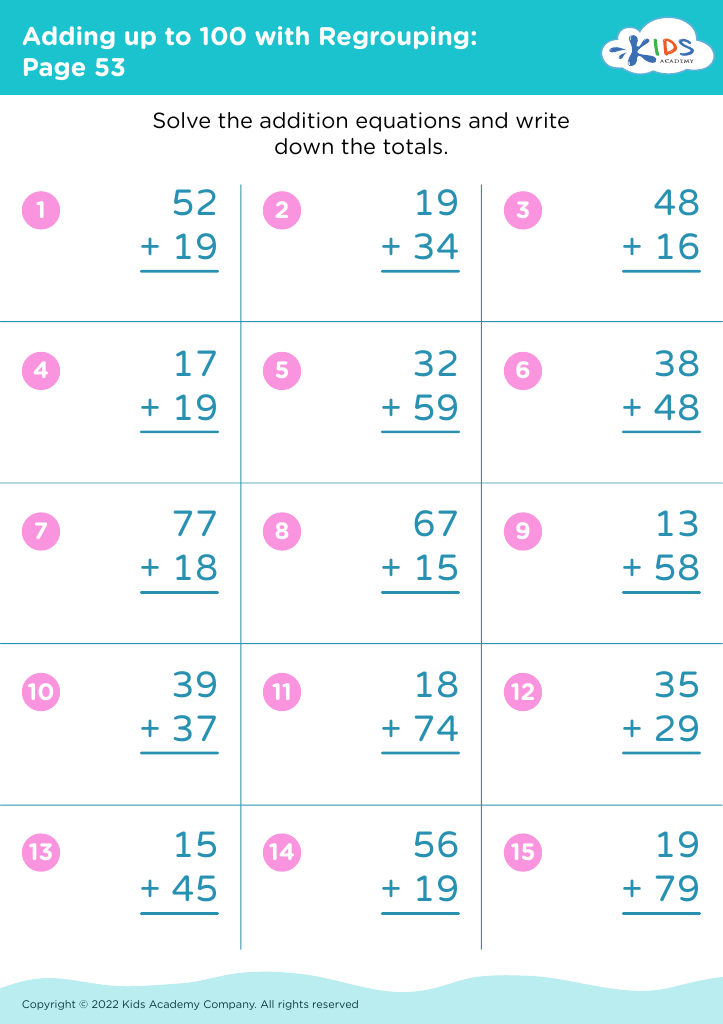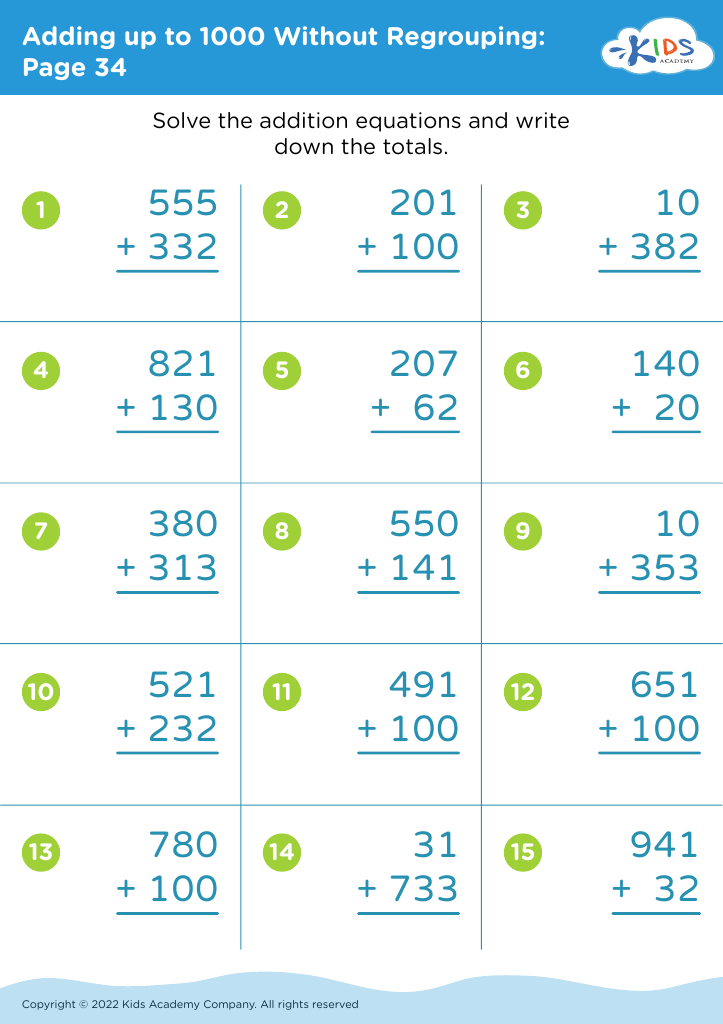Improve problem-solving Addition Worksheets for Ages 6-7
4 filtered results
-
From - To
Boost your child's math skills with our "Improve Problem-Solving Addition Worksheets" designed for ages 6-7. These engaging, age-appropriate worksheets focus on enhancing problem-solving abilities while reinforcing addition concepts. Each activity combines fun illustrations with practical examples to captivate young learners and make learning enjoyable. Our expertly crafted worksheets aim to build a solid foundation in math through step-by-step exercises, fostering confidence and critical thinking. Ideal for both home and classroom use, these resources are tailored to support every child's unique learning journey. Unlock their problem-solving potential with our comprehensive addition worksheets.
Parents and teachers should prioritize improving problem-solving addition skills for children aged 6-7, as this foundational math ability sets the stage for future academic success and cognitive development. At this age, children are developing their number sense, which is crucial for more complex mathematical concepts they will encounter later. Mastering addition not only boosts mathematical understanding and performance but also enhances critical thinking and logical reasoning skills.
Good problem-solving skills empower children to tackle challenges methodically, fostering persistence and resilience when solutions are not immediately apparent. This mental process extends beyond math, helping children become adept at resolving issues in everyday life. Strengthening these abilities in a supportive environment helps build confidence and positive attitudes toward learning.
Early competency in addition also reinforces practical life skills, such as counting money, telling time, and organizing objects. It paves the way for a smoother transition into more advanced topics, such as subtraction, multiplication, and division. Moreover, working on addition problems encourages collaborative learning, where children can engage with peers, improving social skills and teamwork. Ultimately, nurturing these early math skills lays a critical foundation for a child's overall educational journey and lifelong problem-solving abilities.











.jpg)












